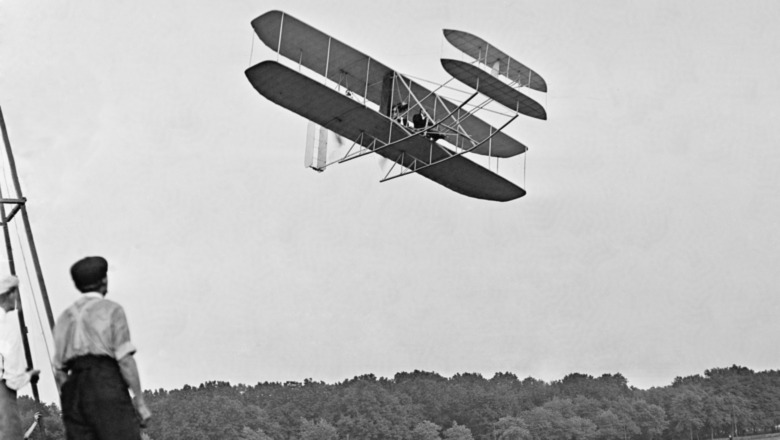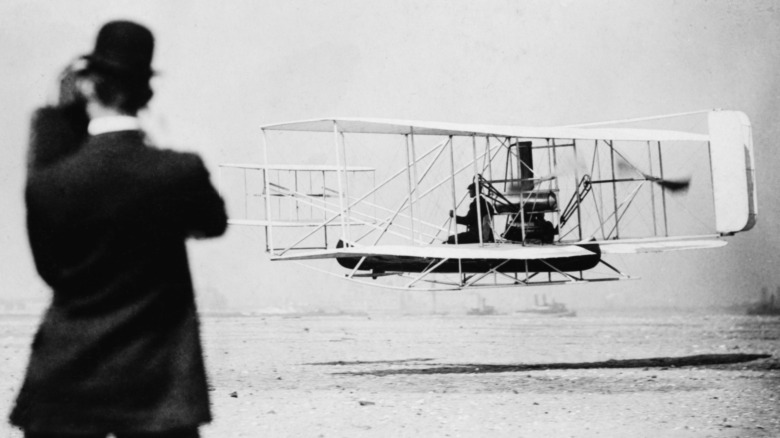This Was The First Passenger To Die In A Plane Crash
According to the US National Safety Council (per Australia's Special Broadcasting Service News – SBS), air travel is the safest mode of transport. It's estimated that the chances of perishing as a commercial jet passenger are 1 in 205,552, compared to 1 in 102 for a passenger in a car.
It's also believed that around 70% of people have a fear of flying, says SBS, and it's no surprise, given the history of aviation. Why are commercial flights so safe for travelers today? One reason is because industry pioneers risked their own lives, and sometimes tragically lost their lives, to make it so.
Of those pioneers who flew weird and wonderful aircraft, the Wright brothers have pride of place — first place. Orville and Wilbur Wright earned the dual accolade of achieving the first controlled flight in 1903 and constructing the first true airplane in 1905 (per Britannica). Sadly, though, three years after the latter achievement, an army officer riding along with Orville would become the first-ever passenger airplane crash fatality.
A tragic test flight
Lieutenant Thomas Selfridge was aboard the Wright Flyer on September 17, 1908. As Wired reports, Orville Wright was conducting a series of test flights, after the brothers had received a contract from the U.S. army earlier that year.
Orville had performed multiple flights from Fort Myer, Virginia, where the tests were conducted. Sadly, Lieutenant Selfridge (of the Aerial Experiment Association whose own craft, the Red Wing, had achieved a limited flight in March of the same year) would be fatally injured on his own flight with Wright.
As reported by History Net, Wright and Selfridge's flight began smoothly. The craft reached 100 feet and proceeded at 40 mph. Four minutes or so into the flight, a knocking sound from the plane alarmed Wright and he attempted to land. Before he could regain control of the craft, part of the propeller broke away. The plane crashed to the ground, the attending superintendent reported, "doing almost a complete somersault and throwing up a dense cloud of dust."
Wright broke multiple ribs and fractured a thigh, but would eventually recover. The Lieutenant had fractured his skull, though, and died of his internal injuries that night. And so, per History Net, "America's first military pilot had become the airplane's first fatality."
While Orville wasn't held responsible, his brother Wilbur, according to Wright Stories, lamented in a letter to his sister Katharine, ""I cannot help thinking ... 'If I had been there, it would not have happened.'"

